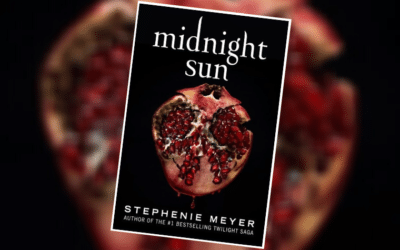Three weeks ago, I cancelled my Friday night plans, curled up on my couch, queued up my borrowed Netflix account, and devoted one hundred and five minutes of my life to Sierra Burgess. One hundred and five minutes later, I felt cheated out of an amazing storyline. I wasn’t alone:
So I’m watching Sierra Burgess is a Loser and like this whole movie is irritating and Sierra Burgess is actually a loser and I have no empathy for her
— Janice Nakisha Williams (@ManhattanJan) September 15, 2018
"After watching 'Sierra Burgess Is a Loser'… I have to admit that it’s been a while since I’ve seen a rom-com that could so easily be re-edited into a psychological thriller." https://t.co/KG4jEphGWF
— HuffPost (@HuffPost) September 7, 2018
The following morning, I vented my frustrations about the film’s transphobia/homophobia, catfishing, consent, and Jamey’s Western pajama set with texts and Tweets; dissected where the film failed and how it could improve; and analyzed it with such scrutiny typically reserved for a master’s thesis.
 Just nope.
Just nope.
By the following midweek, I forgot that the film existed.
That all changed a few days ago when I decided to rewatch it. Why? I already knew what to expect and where it’s problematic, and by understanding that, perhaps seeing it’s potential. Also, watching Noah Centineo signing “I love you” is my new everything.
Did I love it on my second watch? Absolutely not. Was it still problematic AF? Yes. Did it completely fail as a film? Initial view Julie would have said yes and let it burn in a dumpster fire, that what she was expecting was another To All the Boys I’ve Loved Before romantic comedy. However, second view Julie did see where the film had its moments, and that one of the Sierra’s problems was its timing – exactly two weeks after TALBILB – and misleading marketing as the next great rom-com.
So with a new sense of clarity, let us finally discuss where Sierra Burgess is a winner, and where Sierra Burgess is a Loser. You see what I did there? #cheeky
Just giving you a heads up, there’s going to be some a-spoiling.
Win: The Initial Message
With all its faults – and there are faults – the film does convey some powerful messages. Now, before you @ me with why I’m wrong, bear with me for a moment.
Think back to teen movies featuring the stock “awkward/nerd” female character – Ally Sheedy in Breakfast Club or even Rachel Leigh Cook in She’s All That. These characters start off as outcasts, shunned from their peers for being different or non-conforming. Then something happens: the popular jock somehow finds her “inner beauty,” but before the awkward girl and the popular boy can come together, the girl gets the “Cinderella makeover.” The glasses come off, the hair is styled, the outfit is whatever Forever 21 has on current display, and that awkward “freak” is now stunning and slo-mo walking down a flight a stairs to the gasp and delight of the crowd. The outcast is now part of the in-crowd.
This doesn’t happen in Sierra Burgess. What we get is the message that you don’t have to conform to society’s ideas of beauty and acceptance.
Aside from getting a few stray eyebrows plucked, Sierra never once has the makeover: her hair remains unruly, she doesn’t discover contouring or shape wear, and her wardrobe doesn’t magically transform over night. Although at the end of the film she becomes friends with the popular cheerleader, the title character does not become part of the in-crowd or gain the overwhelming approval of her peers.
For a teenage “rom-com” (Once again, not a rom-com), this is a welcomed and powerful departure from the otherwise misguided and damaging trope we typically see in films. Unfortunately, the message became lost among the glaring issues of the film.
Loss: Sorry Not Sorry
For every selfish and harmful choice we make, there’s a consequence: perhaps we lose something or even hurt someone in the process. This is not the case in Sierra Burgess is a Loser.
Throughout the film, Sierra makes horrible choices: she knowingly catfishes Jamey, fakes deaf in order to continue her rouse, kisses a deceived Jamey without his actual consent, and slut-shames Veronica in front of the entire school. Her apology for her behavior is weak – a simple, single text to Jamey that reads “I’m sorry for everything. I never meant to hurt you” (Isn’t she suppose to be a great writer?), and a song to Veronica that’s not in any way shape or form an apology but a song about Sierra herself.
What’s the result? She ends up with Jamey and literally hugs it out with Veronica.
The film unknowingly presents a dangerous message that our actions have no consequences, and that if we just write a song about being a flower, all will be forgiven and forgotten.
I understand that this is fiction and of course the ending has to wrap up neatly for Sierra Burgess. My problem lies with the fact that she never has to work for that forgiveness; it’s just simply given to her. Sierra neither explains her behavior nor does she seek redemption, and in the end she gets what she wants. As a viewer, we’re left wondering why Sierra deserved this happy ending, rather than basking in the glow of her personal triumph.
Win: Veronica
Think of any film, tv show, or book that you repeatedly binge on any day that ends in a “y.” What initially drew you to it? More than likely, a well created protagonist. These are the characters who we are either mirrors of our true selves, who we want to become, or even those we want in our own lives. They are multidimensional, real, and beautifully flawed.
For me, the true protagonist of Sierra Burgess is a Loser is not Sierra Burgess. It’s Veronica.
This film is not Sierra’s story; it belonged completely to Veronica, the girl we’re initially supposed to despise. Of all the characters, Veronica endures the greatest change: from our first sight of her as an elitist apex predator, to a damaged little girl desperate for love, to finally a strong, young woman standing up to her overbearing mother. With her own flaws and redemption, the character breaks away from the “mean girl” stock characterization and becomes someone we ultimately root for in the end.
Loss: Sierra
Let me just start off by saying this: I did not like the character of Sierra Burgess.
I should have loved her, rooted for her, and cheered for her when she finally kissed a completely aware Jamey. At the end of the film, I was completely unable to do any of this.
Whereas Veronica progresses as the story unfolds, Sierra actually regresses. Although she begins the film with the potential to be a character we could love, Sierra ultimately becomes the bully, blames others for her problems rather than examining her own actions, and doesn’t learn anything from her mistakes. Rather than respect her intellect, I found myself cringing over how she used it as a weapon against Jamey and Veronica . While I should have giddy clapped when the credits rolled, I found myself despising Sierra, wanting to hold an intervention for Jamey, and wishing for a sequel that just focused on Veronica.
In the end, what we learn from Sierra is that anyone – regardless of size, looks, or intellect – can easily become “the mean girl.”




